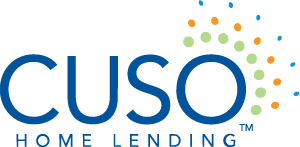The thrill of house hunting comes with the not-so-thrilling and complex process of securing a mortgage loan. As a prospective homeowner, you’ve probably heard about different types of mortgage loans, with “conventional mortgages” being one term that frequently comes up. However, understanding what a conventional mortgage entails can sometimes feel overwhelming. But don’t worry! We’re here to help clarify conventional mortgages for you, addressing your pressing questions and concerns. At CUSO Home Lending, we’re committed to providing expert advice to make your home buying journey as smooth as possible.
Understanding Conventional Mortgages
First, a conventional mortgage is a loan that isn’t insured by the government. This little fact distinguishes it from other loans such as Federal Housing Administration (FHA) or Veterans Affairs (VA) loans. Instead, conventional mortgages are backed by private entities like Fannie Mae and Freddie Mac. To put it another way, “conventional” just means that the loan is not part of a specific government program.
Conventional mortgages are quite popular, constituting 71.6% of all mortgage loans initiated each year.

Qualifying for a Conventional Mortgage
To qualify for a conventional mortgage, there are certain eligibility criteria that you need to meet, mainly revolving around your credit score, debt-to-income (DTI) ratio, and down payment you can afford.
The minimum credit score varies based on your down payment. For instance, with a 3% down payment, a credit score of 620 or higher is needed.
Your Debt-to-Income ratio (DTI) is a measure of your financial health that compares your monthly debt payments to your monthly income. Simply put, it tells lenders how much of your income is used to pay debts. For a conventional mortgage, you’re typically required to have a DTI of 45% or less, meaning a little less than half of your income goes toward debt payments. This assures lenders that you can manage your mortgage payments effectively.
Down payment amounts typically start from 3% of the home’s purchase price; however, if your credit score is lower than preferred, the down payment amount required may increase.
Pros and Cons of Conventional Mortgages
Before choosing a mortgage, it’s essential to weigh the advantages and disadvantages of each option. In this section, we’ll explore the pros and cons of conventional mortgages to help you make an informed decision.
Pros of Conventional Mortgages
- Competitive Interest Rates: Conventional mortgages often offer competitive interest rates, which can save you money in the long run.
- Flexible Loan Terms: Conventional mortgages provide flexibility in choosing loan terms, ranging from 10 to 30 years, allowing you to select a repayment schedule that fits your financial goals.
- No Upfront Mortgage Insurance: Unlike government-backed loans, conventional mortgages don’t require upfront mortgage insurance if you put down at least 20%. This can reduce your initial costs.
- Canceling Private Mortgage Insurance (PMI): With a conventional mortgage, you can cancel PMI once your loan balance reaches 80% of the home’s original value, potentially saving you money in the long run.
- Lender Options: Conventional loans are offered by a wide range of lenders, giving you the opportunity to shop around for the best rates and terms.
Cons of Conventional Mortgages
- Higher Down Payment Requirements: Conventional mortgages typically require larger down payments compared to government-backed loans, starting at a minimum of 3%.
- Stricter Credit Requirements: Conventional loans usually have stricter credit score requirements, which can make it more challenging for borrowers with lower credit scores to qualify.
- Private Mortgage Insurance (PMI): If you put down less than 20%, you’ll be required to pay PMI, an extra cost added to your monthly mortgage payment.
- Less Forgiving of Financial Hardships: Conventional loans may be less accommodating if you experience financial hardships such as job loss or medical emergencies, compared to government-backed loans that offer more flexible options in these situations.
Wrapping Up
The world of conventional mortgages may seem daunting, but by learning about the details of these loans, you can make informed decisions that align with your financial situation and homeownership goals.
At CUSO Home Lending, we’re here to support you throughout the entire homebuying process, providing clarity and assistance at every step. We encourage you to reach out to one of our mortgage lending experts to learn more about how CUSO can help you make your homebuying dream a reality!





